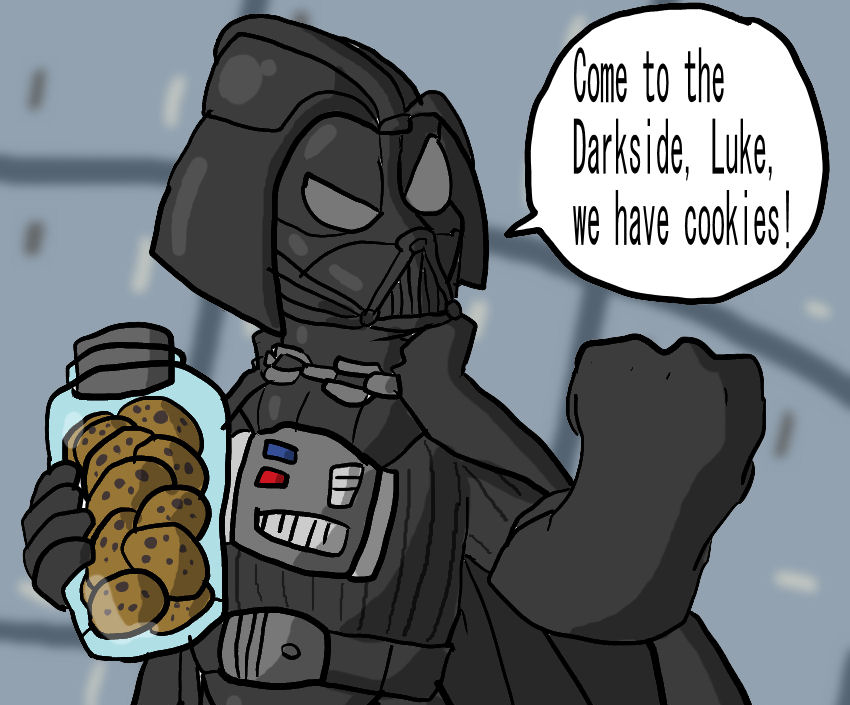I Hate Cookies
“A man’s ethical behavior should be based effectually on sympathy, education,
and social ties…Man would indeed be in a poor way if he had to
be restrained by fear of punishment and hope of reward…”
-Albert Einstein
Do it and you get a cookie.
That is the essence of behavioral modification therapy. The more I use it, both in my professional life and as a father, the more I’m confounded by the idea that it’s broken.
Really. Control the gasps, but I’m growing to think that we, as a society have moved past Pavlov. This idea is based on three notions.
It’s bred into us: There was a time before Joseph Wolpe’s study of reward/consequence began to pervade parenting in the 1950s. Back then it was novel. However, in present teens, Wolpe’s positive behavioral re-enforcement has mingled with Dr. Spock’s conflicting individualistic view of the child and thus we have our present behavioral morass. These ideas are no longer insightful, new interventions to solve present problems. They are the present. Kids understand that positive behavior will net a positive return. It’s no surprise, and it lacks impact. It’s helped breed a generation of reward calculators. You’ve heard about the “What’s in it for me?” Generation. Take it a step further, and we find the “Is the reward better than the fun of misbehavior?” Generation.
It’s not reality-based: It works very well in Residential Treatment settings because they are structured on an in-built reward consequence system. However, in “the real world” enacting positive behavior doesn’t get you a cookie every time. Conversely, negative behavior also does not always net a consequence. Thus, the modification loses strength every time that framework goes unenforced. Even more detrimental, the modification erodes exponentially the more the kid actually tries to cognitively come to grips with the world—which is what we’re supposed to be preparing kids to do as parents and therapists.
It’s externally driven, not internally motivated: Do the right thing and you get what you want, do the wrong thing and you are punished. It teaches to do the right thing, right? Sometimes. Unless the kid strikes on the notion that lying, hiding or sneaking can allow them to do the wrong thing but still avoid punishment or get what you want. Especially when nobody’s looking. There’s little discussion of the positive feelings associated for doing right for right’s sake. Kindness. Honor. Conscience. It’s all math without philosophy.
But What’s Better Than Cookies?
“A balanced diet is a cookie in each hand”
-Anonymous
I don’t have the solution. I’m coming to grips with this notion because I have the unique opportunity to play a role in reshaping a therapeutic program for teens who have “graduated” from the Residential Treatment level, but are not yet ready to re-encounter the world full time. From my perspective, this graduation program lies at the center of this issue; The conflict between behavioral modification and reality.
I’m doing research. Right now I’m most interested in Bernard Weiner’s “Attributional Theory of Achievement Motivation and Emotion” to help build a reward system that is rooted in emotional responses, and Dr. Scott Turansky (et. al)’s conscience building techniques to create a system of rules that re-enforce self governance based in self-motivation rather than cookie seeking. But it’s a work in progress.
That’s The Way The Cookie Crumbles
“Parents are not quite interested in justice, they are interested in quiet.”
-Bill Cosby
This is where we all come in. You don’t have to have a single degree in anything to understand that conflict. We’ve all been there. Adolescence, even the most well adjusted variety, is essentially the same conflict. We come to grips with the world as we see it, while shedding the training wheels of childhood behavior modification but retaining the core principles which underscored them. Thus, adolescence sucks. But we made it. I need your help.
Post-Adolescents: How you made it through adolescence? What did you find important to keep through that transition and what did you leave behind?
Parents: What works well to internally motivate your kids? What do you dread about the teen years?
Therapists: Do you also find behavioral modification only part of the issue? Or am I a complete fool in wanting to move past behavioral modification?
Discuss,
K


